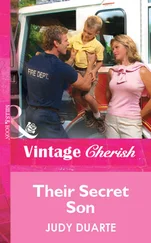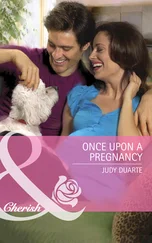“Of course, sir.”
When the woman walked away, Rico cast Molly a Casanova smile. “Did I mention being hungry?”
“A couple of times.” She couldn’t help but grin.
“The dentist will have to forgive me for being rude and not waiting. But I’ve got to eat something.”
“I’m sure he and your mom will understand.”
She’d meant to bring up the subject of her sister while they rode in his car, but the timing hadn’t seemed right. So they had talked about his Corvette, about the mint condition of the interior, the speed it reached on an open road. The car suited him, she supposed.
Moments later, when one of the busboys brought water and set a basket on the table, Rico offered Molly the first choice of several small precut loaves of fresh-baked bread—French, sourdough, pumpernickel….
She took a slice of the baguette, and he chose the sourdough.
“So,” he said, taking his knife and smearing a thick slab of butter on his bread, “tell me about the sister you want to locate.”
Molly wasn’t sure where to begin. There were some things she never revealed to the men she ate dinner with. In fact, there were some memories she’d never even shared with her friends.
But this was different. Rico was a private investigator, and she’d tell him anything she could remember that might help him locate Lori.
“I was born in Los Angeles,” she began, “the oldest of two girls. My dad was an on-again, off-again junkie, and I don’t remember much about my mother other than she left one night to buy a pack of cigarettes and never came back.”
Rico listened intently, his demeanor taking on a professional air, which made it easier for her to share the things she kept close to the vest.
“My father was pretty worthless,” she admitted, “so I took over as a surrogate mother to my younger sister, Lori.”
Rico took a sip of water and watched her over the rim of his glass. He didn’t speak, didn’t prod her to keep going, but an intensity in his eyes told her he was listening carefully.
“My dad wasn’t big on wasting what little money he brought home on groceries, so I’d have to be a little creative.” She shrugged. “You know, soda crackers and beer nuts for breakfast, stale-bread-and-ketchup sandwiches for lunch. That sort of thing.”
Again she tried to read something in his eyes—sympathy, disgust. Something that might suggest she ought to keep quiet and hold on to the rest of the ugliness. But he merely listened, hiding his opinion as a professional should.
Earlier he’d told her that he’d seen the seedy side of life. She supposed he was realizing that she’d seen a bit of it herself.
She picked up her fork and ran a finger across the edge of the tines, then replaced it beside her plate. For a moment she struggled with making eye contact, then shrugged it off and caught his gaze. “One day when I was eleven, we were left alone for several days, and I had to scavenge around for food….”
His dark brow twitched—the only sign of a response she’d seen so far.
“Not in Dumpsters,” she told him, in case his thoughts had gone in that direction. “But there was a little taco shop down the street—Rosarita’s. And sometimes the manager would give me some leftover menudo or a couple of bean burritos. There was also a newsstand that sold coffee and sweet rolls to its customers. The guy who worked on weekends, Harold, would give me day-old donuts for free.”
“I knew a couple of guys like that.”
She wasn’t sure what he meant, but for some reason she sensed they’d touched upon a commonality.
“Anyway,” she said, “I found this dirty, scraggly dog that afternoon, hanging out at the rear entrance of the Laundromat. It was hard enough finding food for Lori and I to eat, but I couldn’t just let that little guy stay on the street.”
The hint of a smile tugged at Rico’s lips. “I figured you for an animal lover.”
“I don’t know about that. I don’t have any pets now.”
“Why not?”
She shrugged. “Cats and dogs need love and attention, and I’m not home very much. It wouldn’t be fair to them. But I’m sure glad I took Petey back to our apartment that day.”
“Why?”
“Two days later, in the middle of the night, he started barking like crazy and licking my face. And when I woke up, I smelled smoke.”
“Smart dog.”
“Petey was definitely a hero. Thanks to him, I managed to get my sister to safety.”
“Sounds like you were a hero, too.”
His voice had softened, hinting at a tenderness she’d yet to see in him. But she brushed off the hint of sentiment, as well as the compliment, unwilling to take any credit for doing what she’d always done—looking out for herself and her sister. “When the fire department arrived and found Lori and me unsupervised, with no food in the cupboards and the power turned off, they notified the police.”
“I hope they nailed your old man for child neglect.”
“They did. They also found drug paraphernalia all over the place.” In spite of her desire to be objective and informative in revealing the past, tears stung her eyes. She blinked away the emotion the best she could and continued. “Lori and I were taken to the county receiving home that night and got the first hot meal we’d had in ages.”
“Good.”
“Yes, it was. But they wouldn’t let Petey go with us.” She swiped at her eye, catching an escaping tear. “I think he ended up at the pound.”
“At least he was better off there than on the streets.”
“I hope so.” She sucked in a wobbly breath and slowly blew it out. “But I owed that dog something and I’ve always felt as though I let him down.”
“You were a kid. And it was out of your hands.”
“I keep telling myself that, but I still feel badly about leaving that sweet little dog behind.”
“When did all that happen?” he asked.
“Twelve years ago. I was eleven, and Lori was six.” She glanced at the table and swept her hand across the linen, flattening out imaginary wrinkles. “A couple months later the social worker told us that my father had signed the paperwork that released us for adoption.”
Rico didn’t seem unusually sympathetic—or cynical—which actually made it easier to talk, to pour her heart out.
His professional demeanor shouldn’t have surprised her, though. She’d done a little research on the Internet and learned that Garcia and Associates claimed to be both elite and discreet. And the firm had been enormously successful. She doubted a company achieved all that if the owner allowed his emotions to get in the way.
And that was fine with her. She wasn’t looking for sympathy; she was looking for her sister.
“Is that when you and Lori were separated?”
“It happened about six months later. They found a home for Lori, but the couple who adopted her didn’t want two children, especially one who was almost a teenager.”
“What was their name?”
“I don’t know. When I asked the social worker if I could call or send Lori a letter, I was told that it had been a closed adoption. Her new parents thought she would be better off starting fresh, forgetting the past.”
Forgetting me.
Molly’s eyes grew misty again, and she cursed the emotion that welled in her chest. She’d only wanted to relay the facts that would facilitate his investigation.
She’d never been a crybaby before, and for some dumb reason, it mattered what Rico thought of her.
Damn. Rico didn’t know what to think, what to do.
The story Molly had told him made him angry at her parents, angry at the system. And it pissed him off that he couldn’t think of anything to say or do to comfort her.
He’d always been uneasy when women cried, which was a big reason he never let any of his dates or lovers get close enough to lean on him.
Читать дальше












